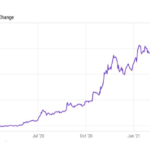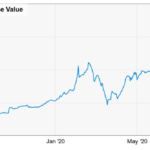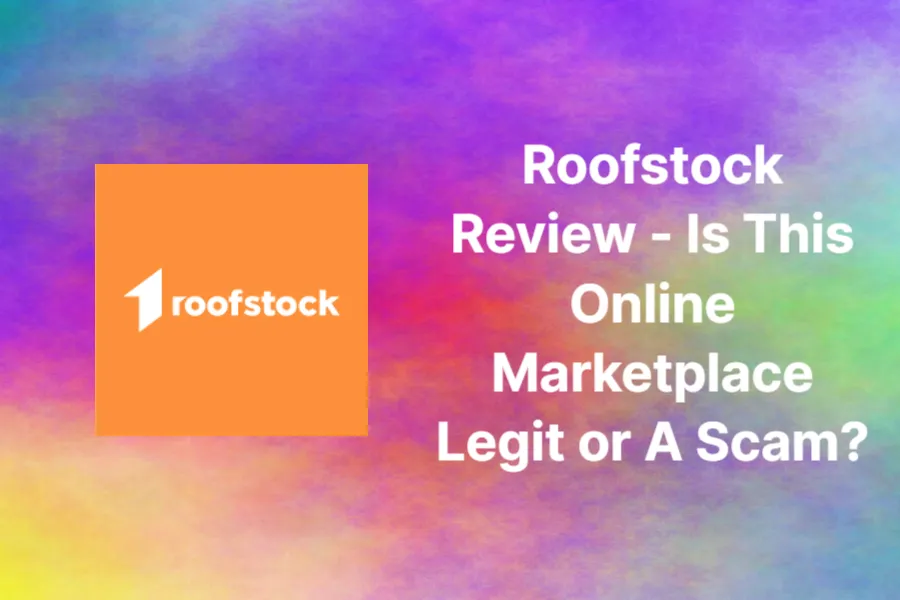Stock delisting refers to the process by which a publicly traded company removes its shares from a particular stock exchange or trading platform. This can occur for a variety of reasons, such as failure to meet the exchange’s listing requirements, bankruptcy, merger or acquisition, or a decision by the company’s management to go private.
What is Stock Delisting?

When a company is delisting, its shares can no longer be bought or sold on that exchange or platform, and it may become more difficult for investors to trade or obtain information about the company’s shares. In some cases, a company may be delisted from one exchange but continue to trade on another exchange or platform.
Also Read: Is The Stock Market Going to Crash In 2023
How does Stock Delisting Work?
Stock delisting occurs when a company’s shares are removed from a particular stock exchange or trading platform. The process typically begins with a notification from the exchange or platform that the company is no longer meeting its listing requirements or has violated exchange rules.

The company will then be given a period of time to address the issues and meet the exchange’s requirements. If the company is unable to meet the requirements within the given timeframe, the exchange or platform will initiate the Stock delisting process. This process typically involves a series of notices and hearings to provide the company with an opportunity to appeal or challenge the Stock delisting decision.
Once a company has been delisted, its shares can no longer be traded on the exchange or platform in question. However, the company may still have other options for trading its shares, such as trading on other exchanges or over-the-counter markets. In some cases, a delisted company may also seek to relist on the same or a different exchange or platform, although this process can be challenging and time-consuming.
How Does the Stock Delisting Process Work?

The stock delisting process typically involves several steps:
- Notification: The first step in the Stock delisting process is for the exchange or platform to notify the company that it is in violation of listing requirements or exchange rules. This notification will outline the specific issues that need to be addressed and may include a deadline for the company to take action.
- Cure period: Once the company has been notified of the violation, it will be given a cure period to address the issues and regain compliance with the exchange’s requirements. The length of the cure period may vary depending on the nature and severity of the violation.
- Hearings and appeals: If the company is unable to regain compliance within the cure period, the exchange or platform may initiate a series of hearings or appeals to allow the company to challenge the delisting decision. These hearings may involve a review of the company’s financial and operational performance, as well as any potential mitigating factors or extenuating circumstances.
- Delisting: If the company is unable to regain compliance or successfully appeal the delisting decision, the exchange or platform will proceed with the Stock delisting process. This will typically involve a final notice to the company and its shareholders that the shares will be delisted on a specific date.
Once a company has been delisted, its shares can no longer be traded on the exchange or platform in question. However, the company may still have other options for trading its shares, such as trading on other exchanges or over-the-counter markets. In some cases, a delisted company may also seek to relist on the same or a different exchange or platform, although this process can be challenging and time-consuming.

What Occurs to My Shares After Delisting?
After a stock is delisted, the shares can no longer be traded on the exchange or platform where they were previously listed. This means that you may not be able to buy or sell the shares through your broker on that exchange or platform.
However, owning shares in a delisted company does not necessarily mean that the shares are worthless. Depending on the reasons for the Stock delisting, the company may still be in business and its shares may still have value. In some cases, the company may continue to trade on other exchanges or over-the-counter markets, or it may be acquired by another company.
If the company continues to operate, the shares may be traded on alternative markets, such as over-the-counter markets or on foreign exchanges. However, trading on these markets can be more complex and may be subject to different rules and regulations than trading on a major exchange.
It is also possible that the company may file for bankruptcy or cease operations altogether, in which case the shares may become worthless. In this scenario, investors may be able to claim any remaining assets or proceeds from the liquidation of the company, but this will depend on the specific circumstances of the delisting and the company’s financial situation.
If you are unsure about the status of your shares after a Stock delisting, you should consult with your broker or a financial advisor for guidance on how to proceed.
Check More Stocks Information in BtcAdv Blog!
What Do I Do After Being Delisted?

If you own shares in a company that has been delisted, there are several steps you may want to consider:
- Assess the situation: The first step is to assess the reasons for the Stock delisting and the company’s current financial and operational situation. This may involve reviewing the company’s financial statements, news releases, and other public information to determine if the shares have any remaining value.
- Consider your options: Depending on the situation, you may have several options for managing your shares. For example, you may be able to sell the shares on an over-the-counter market, transfer them to another brokerage account, or hold onto them in the hopes that the company will relist or be acquired.
- Seek professional advice: It may be beneficial to seek the advice of a financial advisor or brokerage firm to help you navigate the Stock delisting process and explore your options. They can provide guidance on the best course of action based on your individual circumstances.
- Stay informed: Even after a delisting, the company may still provide updates on its financial and operational performance. You may want to continue monitoring the company’s news releases and financial statements to stay informed about any developments that could impact the value of your shares.
It’s important to note that investing in delisted companies can be risky and may not be suitable for all investors. You should carefully consider the risks and consult with a financial advisor before making any investment decisions.
Can Still Sell My Shares After Delisting?
Yes, you may still be able to sell your shares in a delisted company, but it can be more difficult and may involve different procedures than selling shares on a major stock exchange.
After a company is delisted, its shares may continue to trade on alternative markets such as over-the-counter (OTC) markets or on foreign exchanges. However, trading on these markets can be more complex, less liquid, and may be subject to different rules and regulations than trading on a major exchange.
To sell shares on an OTC market, you will need to find a broker or dealer that specializes in trading OTC securities. They can help you navigate the process and find buyers for your shares. However, keep in mind that the price you receive for your shares may be lower than the price on the original exchange due to lower liquidity and investor interest.
Alternatively, you may also be able to sell your shares in a private transaction to another investor or to the company itself, depending on the circumstances. In any case, it’s important to do your research and seek professional advice to ensure that you understand the risks and potential benefits of selling your shares after a Stock delisting.
Can It Relist If The Company That Has Been Delisted?
Yes, a company that has been delisted can potentially relist on a stock exchange. However, this can be a complex and time-consuming process, and there is no guarantee that the company will be able to relist successfully.
To relist, the company must first address the issues that led to the Stock delisting and meet the listing requirements of the exchange it wishes to list on. This may involve improving the company’s financial condition, resolving any legal or regulatory issues, and meeting minimum trading and market capitalization requirements.
Once the company has met the listing requirements, it can apply to relist on the exchange. The exchange will then review the application and may require additional information or documentation before making a decision.
It’s important to note that even if a company is able to relist, the process can be costly and may take a significant amount of time. Additionally, the value of the shares may have been impacted by the Stock delisting and the company’s financial performance during the period it was off the exchange. As a result, investors should carefully consider the risks and potential benefits of investing in a company that has been delisted and is seeking to relist.
Can Delisting Benefit the Company?

Stock Delisting can benefit a company in certain circumstances, but it’s typically seen as a negative event by investors and the public.
One potential benefit of delisting is that it allows a company to operate without the regulatory and reporting requirements of a public company, which can be costly and time-consuming. By going private, the company may be able to focus on longer-term goals and strategies without the pressure to meet short-term earnings targets and other market expectations.
In addition, delisting can be a strategic move for a company that wants to reduce the influence of short-term investors and focus on long-term growth. By going private, the company can be owned by a smaller group of investors who have a longer-term perspective and may be more supportive of the company’s strategic plans.
However, these benefits are typically outweighed by the negative impact of delisting on a company’s reputation, liquidity, and ability to raise capital. Stock Delisting can also make it more difficult for a company to attract new investors and may limit its growth potential over the long term.
Overall, while Stock delisting can benefit a company in certain circumstances, it’s generally seen as a negative event that can have long-lasting consequences for the company and its shareholders.
How Can I Sell a Delisted Stock?
Selling a delisted stock can be a complicated process, but there are several options available:
- Over-the-counter (OTC) Markets: After a stock is delisted, it may continue to trade on OTC markets. These markets are less regulated and less liquid than major exchanges, but they can provide a platform for buying and selling delisted stocks. You will need to find a broker or dealer that specializes in trading OTC securities.
- Private Transactions: You may be able to sell your shares in a private transaction to another investor or to the company itself. However, finding a buyer for delisted stock can be difficult, and you may need to enlist the help of a broker or financial advisor.
- Stock Buybacks: In some cases, the company may offer to buy back its shares from shareholders. This can provide a way to sell your shares, but the company may offer a lower price than the current market value of the stock.
- Legal Proceedings: If the company has filed for bankruptcy or is involved in a legal dispute, you may be able to sell your shares as part of a legal settlement or bankruptcy proceeding.
Before attempting to sell delisted stock, it’s important to research the company’s financial condition and the potential risks and benefits of holding or selling the shares. Additionally, you should seek professional advice from a financial advisor or attorney to ensure that you understand the legal and tax implications of selling delisted stock.
The Bottom Line for Stock Delisting

Stock delisting is the process by which a company’s shares are removed from a stock exchange. This can occur for a variety of reasons, including non-compliance with exchange listing requirements, bankruptcy, or mergers and acquisitions.
Stock Delisting can have significant consequences for the company and its shareholders, including a loss of liquidity, decreased visibility, and a decline in the value of the shares. However, it can also provide an opportunity for the company to operate outside of the regulatory and reporting requirements of a public company, which can be costly and time-consuming.
Investors who hold shares in a delisted company may be able to sell their shares on OTC markets, through private transactions, or as part of legal or bankruptcy proceedings. However, selling delisted stock can be a complicated process, and investors should carefully research the company’s financial condition and seek professional advice before attempting to sell their shares.
Overall, stock delisting is typically seen as a negative event by investors and the public, and companies should take steps to maintain compliance with exchange listing requirements and address any issues that may lead to Stock delisting.











